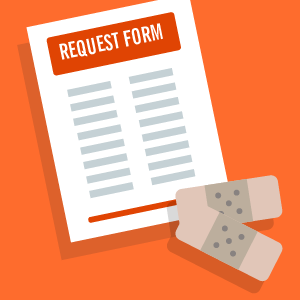Vaccines & Immunization
Getting routine vaccinations on time and staying up to date helps protect us, our families, and our communities from potentially life-threatening diseases.
Contact Us
✔ Vaccinations up to date
✔ Living their #bestlife
Completing recommended childhood immunizations may not seem like a top priority, but the vaccines we have today protect our kids from a long list of diseases, including chickenpox, diphtheria, tetanus, pertussis (whooping cough), flu, measles, polio and HPV. Some of these diseases might seem like something from the past or faraway places, but they still do occur—even here in the United States. All it may take is one encounter to get sick with a virus we thought we would never see again.
Ensuring your kids grow up with protection from these diseases keeps them safe and gives you one less thing to worry about, so you can focus instead on all the other stuff like school, playdates, after school activities, getting from point A to B, figuring out what’s for dinner … you get the idea. Meanwhile, it allows your kids to live their #bestlife.
Do I Really Need to Get Vaccinated?
You may be wondering why getting vaccinated is so important. Simply put, getting your vaccines helps your body build its natural defense against disease—your immune system—before you’re exposed to diseases that can cause severe illness and maybe even death. This means that you have immunity, or protection from an infectious disease—this is known as immunization.
Learn more about immunization
What Vaccines Do I Need?
The vaccines you need will depend on your vaccination history—the vaccines you have already had—and your age. Adults need different vaccines than children because they are at risk for different diseases. See the following pages to learn about vaccine recommendations for adults and kids (including vaccine requirements for children attending school in Washington state) and vaccines to consider before travel to other countries.
If it’s been a while since you received any vaccinations, or if you are pregnant or just getting a newborn started with vaccination, it’s best to speak with your provider about the best way for you and your family to get up to date.

COVID-19 Vaccine
Don’t forget about COVID-19 vaccines! Learn more about COVID-19 vaccines.
How Do I Know Which Vaccines I Have Had?
The first step in making sure that you are up to date on your vaccines is to understand which vaccines you have received and when. If you don’t know, you will need to refer to your immunization record. In some situations, you may even need to provide your immunization record to someone else. Immunization records often are needed for:
- Entry into child-care, kindergarten, school, summer camp, and college or other post-high school training, as well as for future employment and international travel.
- If you are seeing a new healthcare provider, you will need this information to ensure you receive proper medical care. Providers usually count only those vaccine doses that are documented on a written record or are available on a local computerized immunization information system (registry).
If you do not have a copy of your immunization record, you will need to obtain a copy using the methods described below.
Where Do I Find My Immunization Record?
If you need to access your family's immunization records information, you have a few options. Immunization records are not maintained at the national level. Instead, states maintain this information in immunization registries. Washington state’s registry is the Washington State Immunization Information System (IIS), which is maintained by the Washington State Department of Health (DOH). Only healthcare providers can access the IIS, but individuals have other options for accessing records for vaccines received in Washington state. Please note, records for vaccines received in other states will not be available in Washington state systems.
COVID-19 vaccine records
If you no longer have your original vaccination card, or if you need a digital copy of your COVID-19 vaccine information, you can access your electronic vaccination records through MyIR Mobile as shown above, or you can sign up for WAverify to get a digital record of your COVID-19 vaccination.
What if I still can’t find the records?
If immunization records are lost or not available, you or your child may have to repeat vaccine doses. Speak with your medical provider about the best way to do this.
For the future …
Ask that any vaccines you receive are documented in your state or local immunization registry. Your best bet is to sign up for MyIR Mobile if you live in Washington state and to keep copies of records yourself if possible. This will save you time and make it easier to provide your immunization history when needed.
Where Do I Get Vaccines?
If you are due to receive a routine vaccine, such as your Tdap, or if you require vaccination for work, such as vaccine for hepatitis B, or if you intend to travel to another country where vaccines that are not routine in the United States are advised, speak first with your provider. They may be able to provide the vaccines you need.
If you do not have a primary doctor, inquire at your local pharmacy or family clinic. Pharmacies can typically offer most routine and COVID-19 vaccines. It is always best to call in advance to determine whether they have the vaccine(s) you need and if there are any age limits; for example, some pharmacies do not vaccinate children under 6 years In addition, if you are looking for a primary doctor, contact your medical insurance company and they can provide you with a list of providers that are accepting new patients.
If you do not have insurance, there are local medical organizations that offer services on a sliding-fee scale. They also will help you try and obtain insurance. See NeedyMeds.org for more information. Additionally, Spokane Regional Health District occasionally hosts no-cost vaccine clinics. You can find information about upcoming clinics on the Events page.
Resources - Other Languages

Vaccine Clinic Request Form
Partner with SRHD to set up a community vaccine clinic! We can offer routine childhood vaccines, COVID-19, flu and some routine adult vaccines. To request a clinic, please fill out the Vaccine Clinic Request Form. Questions? Call 509.324.1611.

